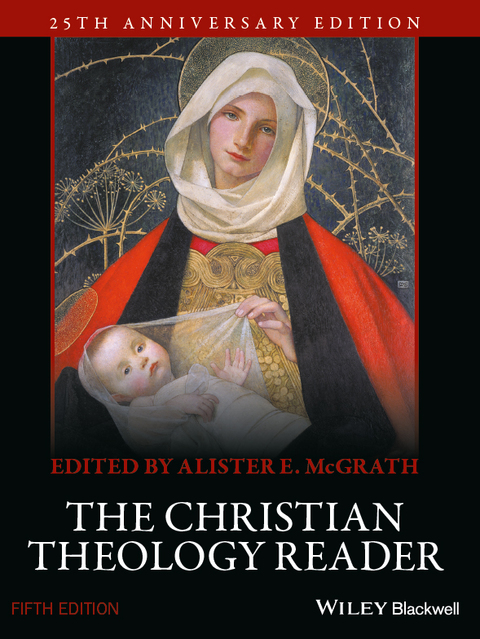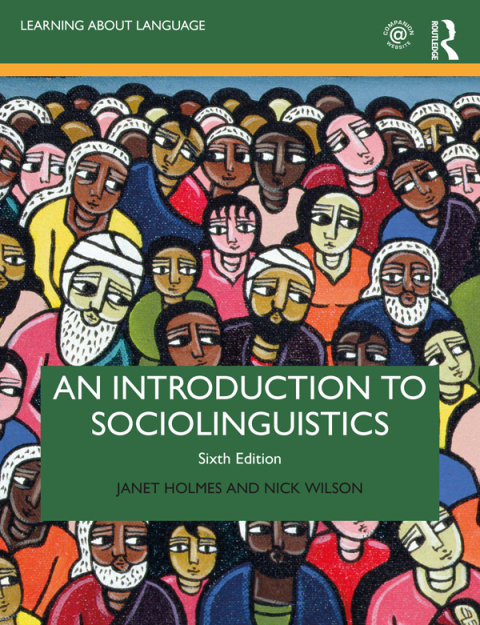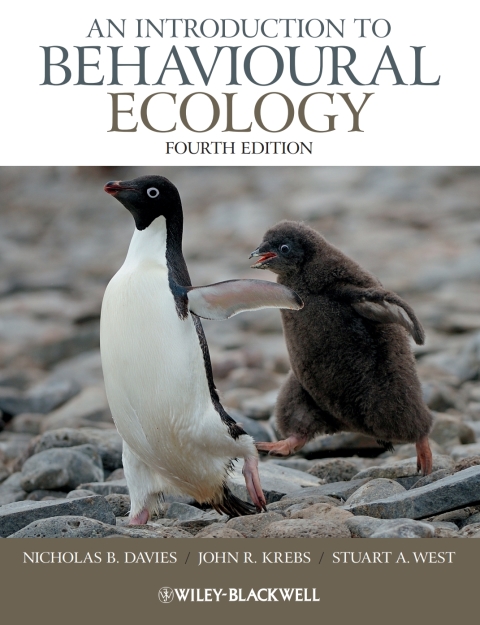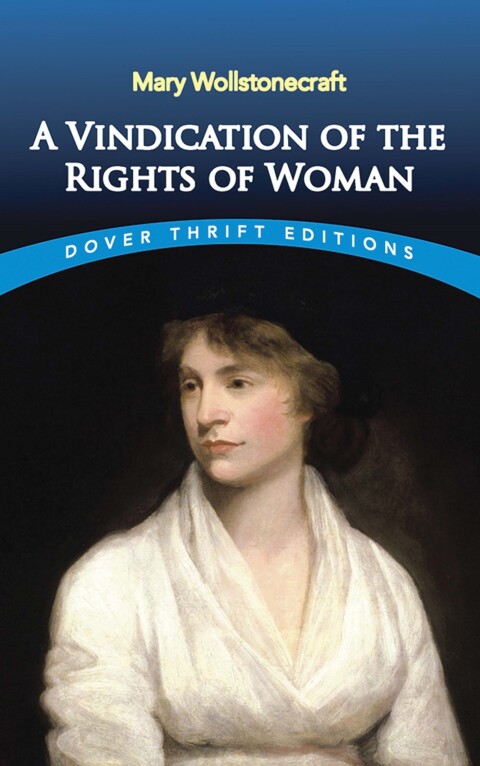Description
Efnisyfirlit
- Cover
- Praise for previous editions of The Christian Theology Reader
- Title Page
- Copyright
- Preface
- Approaching the Readings
- To the Student: How to Use This Book
- To the Teacher: How to Use This Book
- Video Resources for This Textbook
- The Development of Christian Theology: An Historical Overview
- Acknowledgments
- Chapter 1: Getting Started: Preliminaries
- Introduction
- 1.1 Justin Martyr on Philosophy and Theology
- 1.2 Clement of Alexandria on Philosophy and Theology
- 1.3 Tertullian on the Relationship between Philosophy and Heresy
- 1.4 Augustine of Hippo on Philosophy and Theology
- 1.5 The Nicene Creed
- 1.6 The Apostles’ Creed
- 1.7 Anselm of Canterbury’s Proof for the Existence of God
- 1.8 Gaunilo’s Reply to Anselm’s Argument
- 1.9 Thomas Aquinas on Proofs for the Existence of God
- 1.10 Thomas Aquinas on the Principle of Analogy
- 1.11 William of Ockham on Proofs for the Existence of God
- 1.12 Martin Luther on the Theology of the Cross
- 1.13 John Calvin on the Nature of Faith
- 1.14 The Heidelberg Catechism on Images of God
- 1.15 John Locke on the Formation of the Concept of God
- 1.16 René Descartes on the Existence of God
- 1.17 Blaise Pascal on Proofs for the Existence of God
- 1.18 Blaise Pascal on the Hiddenness of God
- 1.19 Immanuel Kant on Anselm’s Ontological Argument
- 1.20 Søren Kierkegaard on the Subjectivity of Truth
- 1.21 The First Vatican Council on Faith and Reason
- 1.22 John Henry Newman on the Grounds of Faith
- 1.23 Adolf Von Harnack on the Origins of Dogma
- 1.24 Karl Barth on the Nature and Task of Theology
- 1.25 Ludwig Wittgenstein on Analogy
- 1.26 Ludwig Wittgenstein on Proofs for the Existence of God
- 1.27 Vladimir Lossky on Apophatic Approaches to Theology
- 1.28 Dietrich Bonhoeffer on God in a Secular World
- 1.29 Paul Tillich on the Method of Correlation
- 1.30 Ian T. Ramsey on the Language of Christian Doctrine
- 1.31 Sallie McFague on Metaphor in Theology
- 1.32 Gustavo Gutiérrez on Theology as Critical Reflection
- 1.33 Brian A. Gerrish on Accommodation in Calvin’s Theology
- 1.34 George Lindbeck on Postliberal Approaches to Doctrine
- 1.35 Dumitru Stăniloae on the Nature of Dogma
- 1.36 Kevin Vanhoozer on the Challenge of Postmodernity for Theology
- 1.37 John Polkinghorne on Motivated Belief in Theology
- 1.38 Pope Francis on Faith and Truth in Theology and the Church
- For Further Reading
- Chapter 2: The Sources of Theology
- Introduction
- 2.1 Melito of Sardis on Typology and Old Testament Interpretation
- 2.2 Irenaeus of Lyons on the Role of Tradition
- 2.3 Hippolytus on Typological Interpretation of Scripture
- 2.4 Clement of Alexandria on the Fourfold Interpretation of Scripture
- 2.5 Tertullian on Tradition and Apostolic Succession
- 2.6 Origen on the Three Ways of Reading Scripture
- 2.7 Cyril of Jerusalem on the Role of Creeds
- 2.8 Augustine of Hippo on the Literal and Allegorical Senses of Scripture
- 2.9 Jerome on the Role of Scripture
- 2.10 Vincent of Lérins on the Role of Tradition
- 2.11 Bernard of Clairvaux on the Allegorical Sense of Scripture
- 2.12 Stephen Langton on the Moral Sense of Scripture
- 2.13 Ludolf of Saxony on Reading Scripture Imaginatively
- 2.14 Jacques Lefèvre d’Etaples on the Senses of Scripture
- 2.15 Martin Luther on the Fourfold Sense of Scripture
- 2.16 Martin Luther on Revelation in Christ
- 2.17 John Calvin on the Natural Knowledge of God
- 2.18 John Calvin on the Relationship between the Old and New Testaments
- 2.19 The Council of Trent on Scripture and Tradition
- 2.20 The Gallic Confession on the Canon of Scripture
- 2.21 The Belgic Confession on the Book of Nature
- 2.22 Melchior Cano on the Church As An Interpreter of Scripture
- 2.23 The Formula of Concord on Scripture and the Theologians
- 2.24 Robert Bellarmine on Protestant Biblical Interpretation
- 2.25 The King James Translators on Biblical Translation
- 2.26 Sir Thomas Browne on the Two Books of Revelation
- 2.27 Francis White on Scripture and Tradition
- 2.28 Jonathan Edwards on the Beauty of Creation
- 2.29 William Paley on the Wisdom of the Creation
- 2.30 Johann Adam Möhler on Living Tradition
- 2.31 John Henry Newman on the Role of Tradition
- 2.32 Charles Hodge on the Inspiration of Scripture
- 2.33 Gerard Manley Hopkins on God’s Grandeur in Nature
- 2.34 Charles Gore on the Relationship between Dogma and the New Testament
- 2.35 James Orr on the Centrality of Revelation for Christianity
- 2.36 Wilhelm Herrmann on the Nature of Revelation
- 2.37 Karl Barth on Revelation As God’s Self-Disclosure
- 2.38 Emil Brunner on the Personal Nature of Revelation
- 2.39 Rudolf Bultmann on Demythologization and Biblical Interpretation
- 2.40 Pope Pius XII on the Authority of the Vulgate Translation of the Bible
- 2.41 Austin Farrer on Demythologization, History, and Biblical Interpretation
- 2.42 Gerhard Von Rad on Typology and Biblical Interpretation
- 2.43 Karl Rahner on the Authority of Scripture
- 2.44 Brevard S. Childs on the Canonical Interpretation of Scripture
- 2.45 Phyllis Trible on Feminist Biblical Interpretation
- 2.46 John Meyendorff on Living Tradition
- 2.47 James I. Packer on the Nature of Revelation
- 2.48 Thomas F. Torrance on Karl Barth’s Criticism of Natural Theology
- 2.49 The Catechism of the Catholic Church on Scripture and Tradition
- 2.50 N. T. Wright on the Authority of Biblical Narratives
- 2.51 Alister E. Mcgrath on a Christian Approach to Natural≈theology
- For Further Reading
- Chapter 3: The Doctrine of God
- Introduction
- 3.1 Athenagoras of Athens on the Christian God
- 3.2 Irenaeus of Lyons on the Origin of Evil
- 3.3 Irenaeus of Lyons on the Trinity
- 3.4 Tertullian on Creation from Preexistent Matter
- 3.5 Origen on Creation from Preexistent Matter
- 3.6 Origen on the Relationship between God and Evil
- 3.7 Gregory of Nyssa on Human Analogies of the Trinity
- 3.8 Basil of Caesarea on the Work of the Holy Spirit
- 3.9 Gregory of Nazianzus on the Gradual Revelation of the Trinity
- 3.10 Athanasius of Alexandria on the Holy Spirit and the Trinity
- 3.11 Hilary of Poitiers on the Trinity
- 3.12 Augustine of Hippo on the Trinity
- 3.13 Augustine of Hippo on the Relationship between God and Evil
- 3.14 Epiphanius of Constantia on Sabellianism
- 3.15 Cyril of Alexandria on the Role of the Holy Spirit
- 3.16 John of Damascus on the Holy Spirit
- 3.17 The Eleventh Council of Toledo on the Trinity
- 3.18 Anselm of Canterbury on the Compassion of God
- 3.19 Richard of St. Victor on Love within the Trinity
- 3.20 Alexander of Hales on the Suffering of God in Christ
- 3.21 Thomas Aquinas on Divine Omnipotence
- 3.22 Bonaventure of Bagnoregio on the Origin of Evil
- 3.23 Julian of Norwich on God as our Mother
- 3.24 William of Ockham on the Two Powers of God
- 3.25 Thomas À Kempis on the Limits of Trinitarian Speculation
- 3.26 John Calvin on the Providence of God
- 3.27 Benedict Spinoza on the Impassibility of God
- 3.28 F. D. E. Schleiermacher on the Trinity
- 3.29 Karl Barth on the “Otherness” of God
- 3.30 Jürgen Moltmann on the Suffering of God
- 3.31 Hans Urs Von Balthasar on the Glory of God
- 3.32 Leonardo Boff on the Trinity as Good News for the Poor
- 3.33 Robert Jenson on the Trinity
- 3.34 Hans Küng on the Immutability of God
- 3.35 Eberhard Jüngel on the Crucified God
- 3.36 Jacques Ellul on the Theology of Icons
- 3.37 Walter Kasper on the Rationality of the Trinity
- 3.38 Paul Jewett on Noninclusive Language and the Trinity
- 3.39 John Milbank on the Trinity in a Postmodern Age
- 3.40 Elizabeth A. Johnson on Male and Female Images of God
- 3.41 Anne Carr on Feminism and the Maleness of God
- 3.42 Sarah Coakley on Social Models of the Trinity
- 3.43 David Bentley Hart on God and Evil
- For Further Reading
- Chapter 4: The Person of Christ
- Introduction
- 4.1 Ignatius of Antioch on Docetism
- 4.2 Irenaeus of Lyons on Gnosticism in Christology
- 4.3 Tertullian on Patripassianism
- 4.4 Tertullian on the Incarnation
- 4.5 Novatian on the Divinity of Christ
- 4.6 Origen on the Two Natures of Christ
- 4.7 Arius on the Status of Christ
- 4.8 Athanasius of Alexandria on the Two Natures of Christ
- 4.9 Apollinarius of Laodicea on the Person of Christ
- 4.10 Gregory of Nazianzus on Apollinarianism
- 4.11 Theodore of Mopsuestia on the “Union of Good Pleasure”
- 4.12 Nestorius on the Term Theotokos
- 4.13 Cyril of Alexandria on the Incarnation
- 4.14 Pope Leo the Great on the Two Natures of Christ
- 4.15 The Chalcedonian Definition of the Christian Faith
- 4.16 John of Damascus on the Incarnation and Icons
- 4.17 Honorius of Autun on the Cause of the Incarnation
- 4.18 Thomas Aquinas on the Necessity of the Incarnation
- 4.19 Gregory Palamas on the Divine Condescension in the Incarnation
- 4.20 Martin Luther’s Critique of Nestorianism
- 4.21 François Turrettini on the Threefold Office of Christ
- 4.22 Gotthold Ephraim Lessing on the Ditch of History
- 4.23 F. D. E. Schleiermacher on the “Natural Heresies” of Christianity
- 4.24 Martin Kähler on the Historical Jesus
- 4.25 George Tyrrell on the Christ of Liberal Protestantism
- 4.26 Albert Schweitzer on the Failure of the “Quest of The Historical Jesus”
- 4.27 G. K. Chesterton on the Incarnation, Myth, and Reason
- 4.28 P. T. Forsyth on the Person of Christ
- 4.29 Dorothy L. Sayers on Christology and Dogma
- 4.30 Paul Tillich on the Dispensability of the Historical Jesus
- 4.31 Wolfhart Pannenberg on the Indispensability of the Historical Jesus
- 4.32 Thomas F. Torrance on the Incarnation and Soteriology
- 4.33 Rosemary Radford Ruether on the Maleness of Christ
- 4.34 Morna D. Hooker on Chalcedon and the New Testament
- 4.35 N. T. Wright on History and Christology
- 4.36 Janet Martin Soskice on Christ’s Significance for Women
- For Further Reading
- Chapter 5: Salvation in Christ
- Introduction
- 5.1 Irenaeus of Lyons on the “Ransom” Theory of the Atonement
- 5.2 Irenaeus of Lyons on “Recapitulation” in Christ
- 5.3 Clement of Alexandria on Christ’s Death as an Example of Love
- 5.4 Athanasius of Alexandria on the Death of Christ
- 5.5 Athanasius of Alexandria on the Relationship between Christology and Soteriology
- 5.6 Pseudo-Hippolytus on the Cosmic Dimensions of the Cross
- 5.7 Rufinus of Aquileia on the “Fish-Hook” Theory of the Atonement
- 5.8 An Ancient Liturgy on Christ’s Descent into Hell
- 5.9 Theodoret of Cyrrhus on the Death of Christ
- 5.10 Augustine of Hippo on Redemption in Christ
- 5.11 Maximus the Confessor on the Economy Of Salvation
- 5.12 Simeon the New Theologian on Salvation as Deification
- 5.13 Anselm of Canterbury on the Atonement
- 5.14 Peter Abelard on the Love of Christ in Redemption
- 5.15 Hugh of St. Victor on the Death of Christ
- 5.16 Rupert of Deutz on the Incarnation as God’s Response to Sin
- 5.17 Thomas Aquinas on the Satisfaction of Christ
- 5.18 Nicolas Cabasilas on the Death of Christ
- 5.19 John Calvin on the Grounds of Redemption
- 5.20 The Socinian Critique of the Idea of Satisfaction
- 5.21 John Donne on the Work of Christ
- 5.22 George Herbert on the Death of Christ and Redemption
- 5.23 Charles Wesley on Salvation in Christ
- 5.24 F.D.E. Schleiermacher on Christ as a Charismatic Leader
- 5.25 F.D.E. Schleiermacher on Christology and Soteriology
- 5.26 Charles Gore on the Relationship Between Christology and Soteriology
- 5.27 Hastings Rashdall on Christ as a Moral Example
- 5.28 Gustaf Aulén on the Classic Theory of the Atonement
- 5.29 Vladimir Lossky on Redemption as Deification
- 5.30 Bernard Lonergan on the Intelligibility of Redemption
- 5.31 Wolfhart Pannenberg on Soteriological Approaches to Christology
- 5.32 James I. Packer on Penal Substitution
- 5.33 Dorothee Sölle on Suffering and Redemption
- 5.34 Colin E. Gunton on the Language of Atonement
- 5.35 The Catechism of the Catholic Church on the Sacrifice of Christ
- 5.36 Miroslav Volf on the Cross of Christ and Human Violence
- 5.37 Rosemary Radford Ruether on Suffering and Redemption
- 5.38 J. Denny Weaver on Violence in Traditional Approaches to the Atonement
- For Further Reading
- Chapter 6: Human Nature, Sin, and Grace
- Introduction
- 6.1 Irenaeus of Lyons on Human Progress
- 6.2 Tertullian on Inherited Guilt
- 6.3 Origen on the Image of God
- 6.4 Lactantius on Political Aspects of the Image of God
- 6.5 Ambrose on the Unmerited Character of Salvation
- 6.6 Ambrosiaster on Original Sin
- 6.7 Gregory of Nyssa on Human Longing for God
- 6.8 Augustine of Hippo on the Nature of Predestination
- 6.9 Augustine of Hippo on Fallen Human Nature
- 6.10 Pelagius on Human Responsibility
- 6.11 Pelagius on Human Freedom
- 6.12 The Council of Carthage on Grace
- 6.13 The Second Council of Orange on Grace and Freedom
- 6.14 Hildegard of Bingen on the Creation of Man and Woman
- 6.15 Alan of Lille on Penitence as a Cause of Grace
- 6.16 Francis of Assisi on the Creation
- 6.17 Thomas Aquinas on the Nature of Grace
- 6.18 Mechthild of Magdeburg on Humanity’s Longing for God
- 6.19 Duns Scotus on the Immaculate Conception of Mary
- 6.20 Gregory of Rimini on Predestination
- 6.21 Gabriel Biel on Merit and Justification
- 6.22 Giovanni Pico Della Mirandola on Human Nature
- 6.23 Martin Luther on Justifying Faith
- 6.24 Martin Luther on Sin and Grace
- 6.25 Philip Melanchthon on Justification by Faith
- 6.26 John Calvin on Predestination
- 6.27 John Calvin on the Concept of Justification
- 6.28 The Council of Trent on Justification
- 6.29 Theodore Beza on the Causes of Predestination
- 6.30 John Donne on the Bondage of the Human Will
- 6.31 The Westminster Confession of Faith on Predestination
- 6.32 Jonathan Edwards on Original Sin
- 6.33 John Wesley on Justification
- 6.34 John Henry Newman on Original Sin
- 6.35 Karl Barth on Election in Christ
- 6.36 Emil Brunner on Barth’s Doctrine of Election
- 6.37 Reinhold Niebuhr on Original Sin
- 6.38 Valerie C. Saiving on Feminist Approaches to Sin
- 6.39 The Second Vatican Council on Human Nature
- 6.40 Mary Hayter on Human Sexuality and the Image of God
- 6.41 Pope Benedict XVI on the Identity of Humanity
- For Further Reading
- Chapter 7: The Church
- Introduction
- 7.1 Irenaeus of Lyons on the Function of the Church
- 7.2 Origen on the Church and Salvation
- 7.3 Cyprian of Carthage on the Unity of the Church
- 7.4 Cyril of Jerusalem on the Catholicity of the Church
- 7.5 Petilian of Cirta on the Purity of Ministers
- 7.6 Augustine of Hippo on the Mixed Nature of the Church
- 7.7 Pope Leo the Great on Ministry Within the Church
- 7.8 Pope Innocent III on the Church and State
- 7.9 Thomas Aquinas on the Catholicity of the Church
- 7.10 Pope Boniface VIII on Papal Primacy
- 7.11 Jan Hus on the Church
- 7.12 Martin Luther on the Marks of the Church
- 7.13 Martin Luther on Priests and Laity
- 7.14 Philip Melanchthon on the Nature of Catholicity
- 7.15 Sebastian Franck on the True Church
- 7.16 The First Helvetic Confession on the Nature of the Church
- 7.17 John Calvin on the Marks of the Church
- 7.18 Richard Hooker on the Purity of the Church
- 7.19 The Westminster Confession of Faith on the Church
- 7.20 Roger Williams on the Separation of the Church from the World
- 7.21 F. D. E. Schleiermacher on the Church as a Fellowship of Believers
- 7.22 The First Vatican Council on Papal Primacy in the Church
- 7.23 Henry Barclay Swete on the Apostolicity of the Church
- 7.24 The Barmen Confession on the Identity of the Church
- 7.25 Stephen Charles Neill on Holiness and the Mission of the Church
- 7.26 Yves Congar on the Hierarchy of the Church
- 7.27 The Second Vatican Council on the Nature of the Church
- 7.28 John D. Zizioulas on Local and Universal Churches
- 7.29 Avery Dulles on the Meanings of “Catholicity”
- 7.30 Stanley Hauerwas on the Church and the Story of Faith
- 7.31 George Dragas on the Orthodox Concept of the Church
- 7.32 Pope John Paul II on the laity and Mission
- 7.33 John Webster on the Church and the Gospel
- For Further Reading
- Chapter 8: The Sacraments
- Introduction
- 8.1 Clement of Alexandria on Faith As Feeding on Christ
- 8.2 Tertullian on the Significance of Water in Baptism
- 8.3 Cyprian of Carthage on Heretical Baptism
- 8.4 Cyril of Jerusalem on the Meaning of Baptism
- 8.5 Cyril of Jerusalem on the Body and Blood of Christ
- 8.6 Hilary of Poitiers on the Effects of Baptism
- 8.7 Gregory of Nazianzus on the Symbolism of Baptism
- 8.8 Augustine of Hippo on Donatist Approaches to the Sacraments
- 8.9 Augustine of Hippo on the “Right to Baptize”
- 8.10 John of Damascus on the Holy Spirit and the Eucharist
- 8.11 Paschasius Radbertus on the Real Presence
- 8.12 Ratramnus of Corbie on the Real Presence
- 8.13 Candidus of Fulda on “This Is My Body”
- 8.14 Lanfranc of Bec on the Mystery of the Sacraments
- 8.15 Hugh of St. Victor on the Definition of a sacrament
- 8.16 Peter Lombard on the Definition of a Sacrament
- 8.17 The Fourth Lateran Council on Baptism and the Eucharist
- 8.18 Thomas Aquinas on Transubstantiation
- 8.19 Martin Luther on the Doctrine of Transubstantiation
- 8.20 Martin Luther on the Bread and Wine As a Testament
- 8.21 Huldrych Zwingli on “This Is My Body”
- 8.22 Huldrych Zwingli on the Nature of Sacraments
- 8.23 John Calvin on the Nature of Sacraments
- 8.24 The Council of Trent on Transubstantiation
- 8.25 John Wesley on the Eucharist and Salvation
- 8.26 John Henry Newman on Infant Baptism
- 8.27 The Second Vatican Council on the Eucharist
- 8.28 Edward Schillebeeckx on the Real Presence
- 8.29 The World Council of Churches on Baptism
- 8.30 Alexander Schmemann on the Eucharist
- 8.31 Rowan Williams on the Nature of a Sacrament
- 8.32 Pope John Paul II on the Eucharist As a Sign of Hope
- For Further Reading
- Chapter 9: Christianity and Other Religions
- Introduction
- 9.1 Justin Martyr on Christianity and Judaism
- 9.2 Ludwig Feuerbach on the Human Origins of Religion
- 9.3 Karl Marx on Feuerbach’s Views on Religion
- 9.4 Karl Barth on Christianity and Religion
- 9.5 C. S. Lewis on Myth in Christianity and Other Faiths
- 9.6 Karl Rahner on Christianity and the Non-Christian Religions
- 9.7 The Second Vatican Council on Non-Christian Religions
- 9.8 Clark Pinnock on Pluralists and Christology
- 9.9 John Hick on Complementary Pluralism
- 9.10 John B. Cobb Jr. on Religious Pluralism
- 9.11 Lesslie Newbigin on the Gospel in a Pluralist Culture
- 9.12 Gavin D’Costa on the Self-Contradictions of Pluralism
- 9.13 Herbert McCabe on Christianity and the Abolition of the Gods
- 9.14 David Ford on Scriptural Reasoning and Interreligious Dialogue
- 9.15 Pope Francis on Evangelism and Interreligious Dialogue
- For Further Reading
- Chapter 10: The Last Things
- Introduction
- 10.1 Irenaeus of Lyons on the Final Restoration of Creation
- 10.2 Theophilus of Antioch on Conditional Immortality
- 10.3 Tertullian on Hell and Heaven
- 10.4 Tertullian on the Millennium
- 10.5 Origen on the Resurrection Body
- 10.6 Cyprian of Carthage on Paradise as the Christian Homeland
- 10.7 Methodius of Olympus on the Resurrection
- 10.8 Cyril of Jerusalem on Prayers for the Dead
- 10.9 Gregory of Nyssa on the Resurrection Body
- 10.10 John Chrysostom on Prayers for the Dead
- 10.11 Augustine of Hippo on the Christian Hope
- 10.12 Gregory the Great on Purgatory
- 10.13 Peter Lombard on the Appearance of Humanity in Heaven
- 10.14 Pope Benedict XII on Seeing God in Heaven
- 10.15 Catherine of Genoa on Purgatory
- 10.16 John Donne on the Resurrection
- 10.17 Jeremy Taylor on Death and Heaven
- 10.18 Jonathan Edwards on the Reality of Hell
- 10.19 John Wesley on Universal Restoration
- 10.20 C. S. Lewis on the Hope of Heaven
- 10.21 Rudolf Bultmann on the Existential Interpretation of Eschatology
- 10.22 Helmut Thielicke on Ethics and Eschatology
- 10.23 Richard Bauckham on Jürgen Moltmann’s Eschatology
- 10.24 Hans Urs von Balthasar on Hell
- 10.25 The Catechism of the Catholic Church on Heaven
- 10.26 Kathryn Tanner on Eternal Life
- For Further Reading
- A Glossary of Theological Terms
- Sources of Readings
- For Further Study: Additional Collections of Readings
- Index
- End User License Agreement






Reviews
There are no reviews yet.